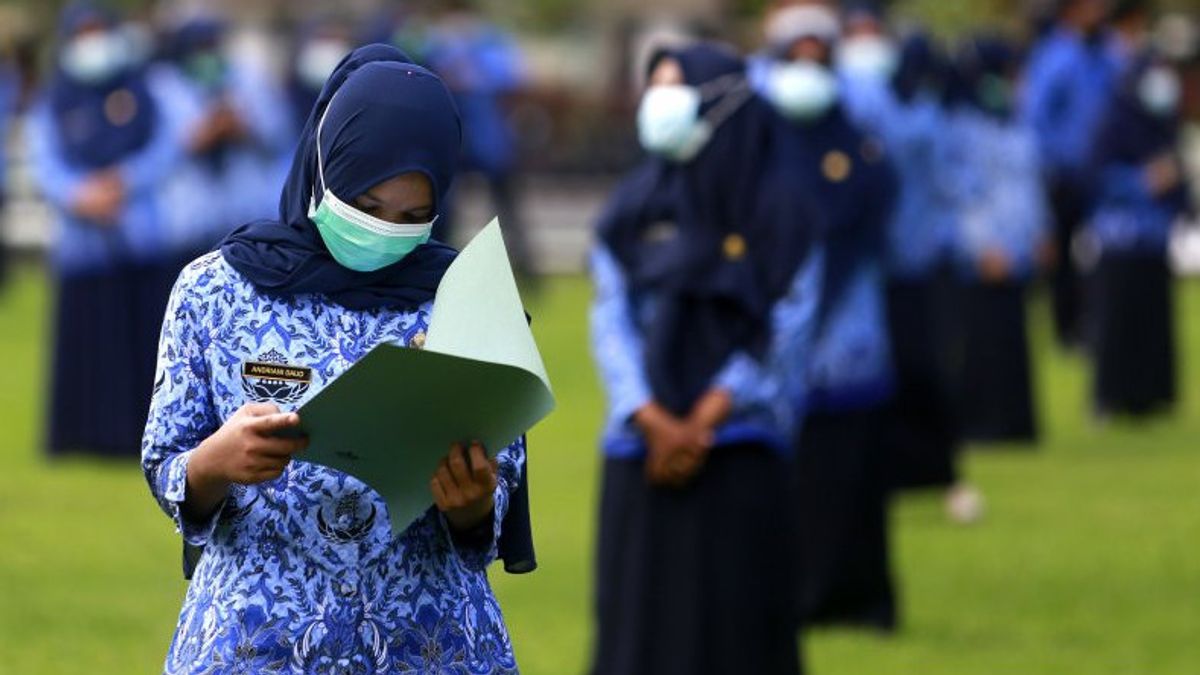JAKARTA - An economic observer from the Faculty of Economics and Business at Mulawarman University (Unmul) Muhammad Ikbal said that the government's policy regarding the disbursement of the 13th salary for state civil servants (ASN) throughout the country is very timely in July 2022.
"The impact is very significant, especially when it is given to ASN who have a middle to lower economic scale. That is very helpful," said Ikbal in Samarinda, quoted from Antara, Thursday, July 7th.
Ikbal explained, there are several reasons why the disbursement time in July is considered appropriate. First, parents face preparation for school entry for their children.
"Moreover, school children are face-to-face, which means they have to buy school necessities such as bags, clothes, shoes and then other necessities such as tutoring," he explained.
Second, entering the middle of July, there is the momentum of Eid al-Adha, where for those who celebrate it may be buying cows or goats and if not they have to buy other necessities, at least for the kitchen needs.
The provision of the 13th salary, he continued, also increased public consumption, where when consumption increased, the regional economy would also increase.
"A maximum of one to two percent in July or August will experience an increase, especially in the trade sector because there is consumption which is quite large and ahead of Eid later," he explained.
In contrast to previous years, namely in 2020 and 2021, he said people were more likely to withhold money from shopping because the COVID-19 pandemic was still high.
"The data obtained is around Rp. 28 trillion to Rp. 30 trillion in funds issued by the government to stimulate the economy in terms of paying this 13th salary," he said.
He also added that the increase in basic electricity tariffs and restrictions on electricity billing did not have much effect on the economy of the lower middle class. Meanwhile, what is quite significant is the increase in gas prices of 3 kilograms.
"Well, the government should have refrained from increasing gas prices and leading to an increase in the basic electricity tariff, which is intended for the upper middle class," he said.
Ikbal admitted that limiting metallurgy while still not removing metallicite was a good step with a note that it was necessary to pay attention to the process in the field that must indeed lead to the lower middle class.
The English, Chinese, Japanese, Arabic, and French versions are automatically generated by the AI. So there may still be inaccuracies in translating, please always see Indonesian as our main language. (system supported by DigitalSiber.id)








